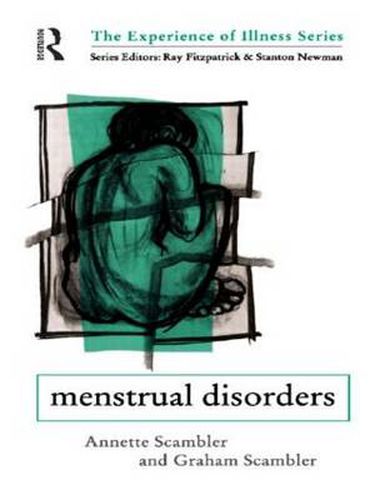Readings Newsletter
Become a Readings Member to make your shopping experience even easier.
Sign in or sign up for free!
You’re not far away from qualifying for FREE standard shipping within Australia
You’ve qualified for FREE standard shipping within Australia
The cart is loading…






What does modern medical science know about menstruation? The menstrual cycle is less well understood by physicians than is commonly assumed and medical understanding of disorders associated with the mensruum is also limited. In this study, Annette and Graham Scambler challenge the orthodox thinking in both society and medicine on menstruation and disorders associated with it. They base their study on women’s own experiences and accounts of menstruation and menstrual disorders, drawing on a wide range of studies including their own. They show that women are often socialized to interpret the menstruum in negative terms and as something essentially private to be contained within the female domain. Taking an unorthodox approach, the authors incorporate a discussion of how menstruation is perceived within male culture and how the perspective of the medical profession has remained discernably patriarchal.They show the significance of this in relation to women’s experience within the family and at work. They end the book by focusing on the medicalization of menstruation and the advantages and disadvantages for women of the greater access to the sick role this development impl
$9.00 standard shipping within Australia
FREE standard shipping within Australia for orders over $100.00
Express & International shipping calculated at checkout
What does modern medical science know about menstruation? The menstrual cycle is less well understood by physicians than is commonly assumed and medical understanding of disorders associated with the mensruum is also limited. In this study, Annette and Graham Scambler challenge the orthodox thinking in both society and medicine on menstruation and disorders associated with it. They base their study on women’s own experiences and accounts of menstruation and menstrual disorders, drawing on a wide range of studies including their own. They show that women are often socialized to interpret the menstruum in negative terms and as something essentially private to be contained within the female domain. Taking an unorthodox approach, the authors incorporate a discussion of how menstruation is perceived within male culture and how the perspective of the medical profession has remained discernably patriarchal.They show the significance of this in relation to women’s experience within the family and at work. They end the book by focusing on the medicalization of menstruation and the advantages and disadvantages for women of the greater access to the sick role this development impl